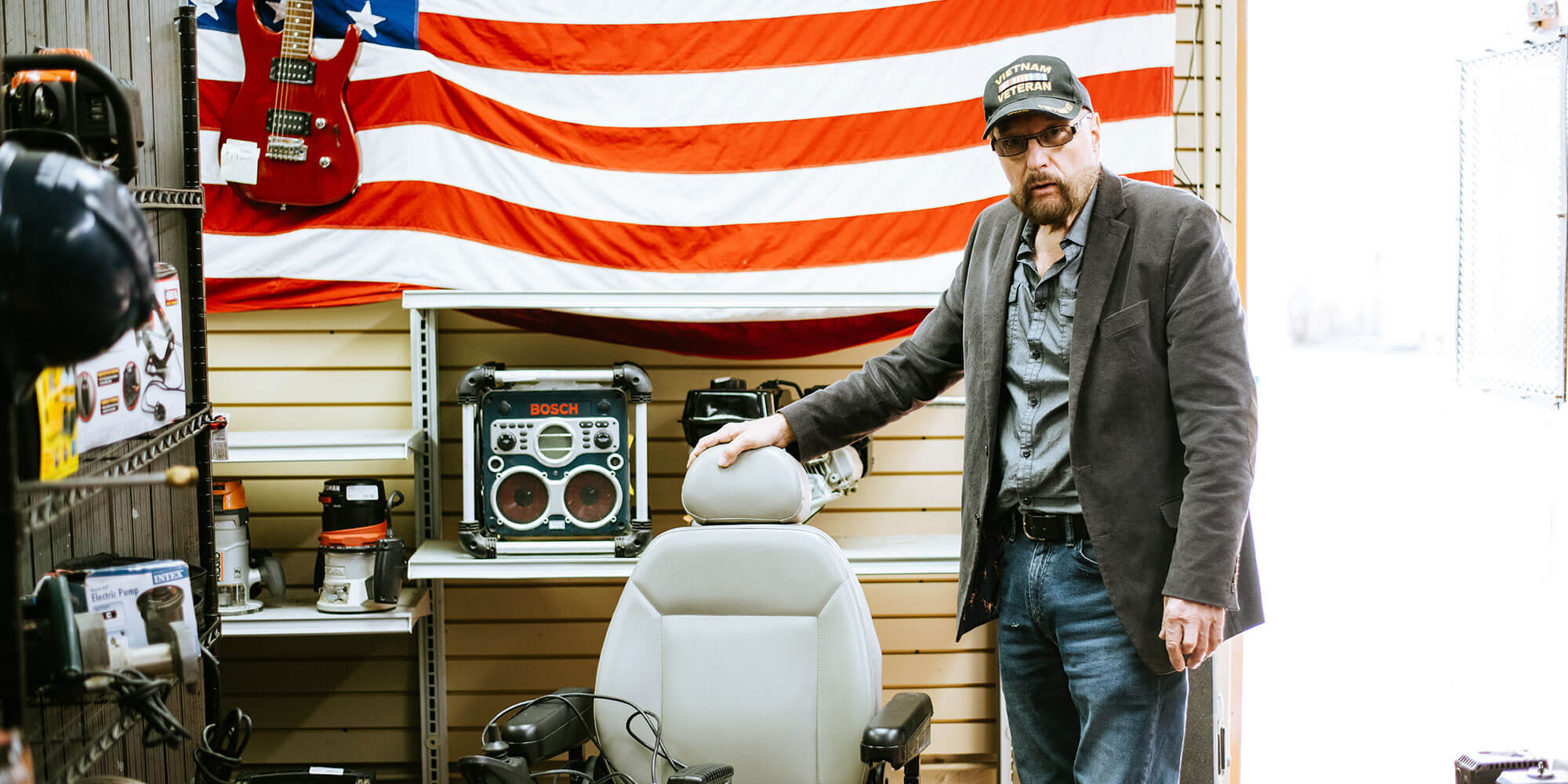Philip Pavone’s quest to help others began in his pawn shop with two motorized wheelchairs. These chairs inspired a decision that opened his eyes to an incredible need, forever changing his life’s path. Nearly a decade later, Philip is still working tirelessly to bring hope and independence to hundreds of people, one motorized wheelchair at a time.
One day in 2009, Philip was trying to solve a problem in his Norwich, Connecticut pawn shop: he had two motorized wheelchairs for sale that no one wanted to buy. Rather than holding onto them, Philip decided to donate the wheelchairs. He placed an ad in his local paper, and in just two weeks, more than 60 letters flooded in.
Philip was shocked to learn how many people were desperate for motorized wheelchairs. Many didn’t qualify for one through their insurance and couldn’t afford the hefty $4,000 to $40,000 price tag on their own.
“At that moment, I realized how many people out there were suffering. It was unbelievable,” says Philip. “Some of the people writing to me hadn’t left their homes for months, even years at a time. Many were elderly and had no one to help them.”
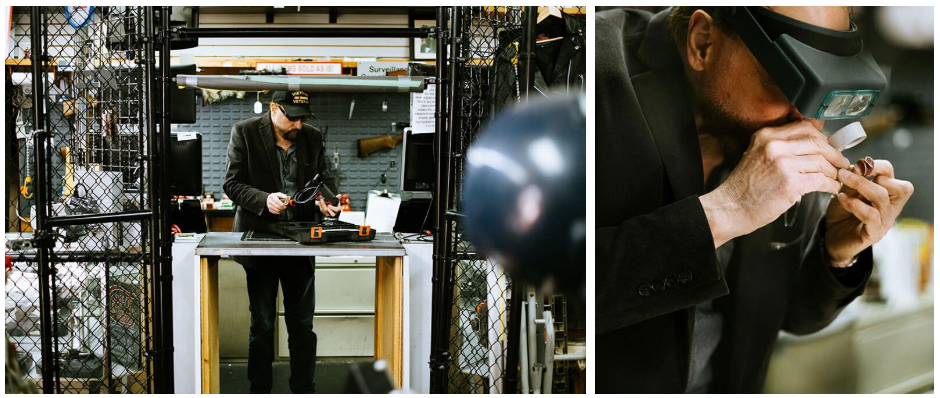
Six heartbreaking letters really hit home for the Vietnam veteran and cancer survivor, and he knew he had to take action. Philip immediately bought four more used wheelchairs, then repaired and gifted them to all six individuals.
Philip discovered a frustrating paradox: there were thousands of people who couldn’t afford motorized wheelchairs, yet countless chairs sat broken or unused in people’s homes.
With no program in the US to solve this problem, he decided to launch his own. Philip called on people to donate their used wheelchairs and scooters so that he could repair them and gift them to those in need. To spread the word about his plan, he began advertising on the radio and TV.
“I asked people to write me a letter and tell me their story,” says Philip. “I read through all of the letters and tried to match a chair to each individual, since chairs are specific to certain needs.”
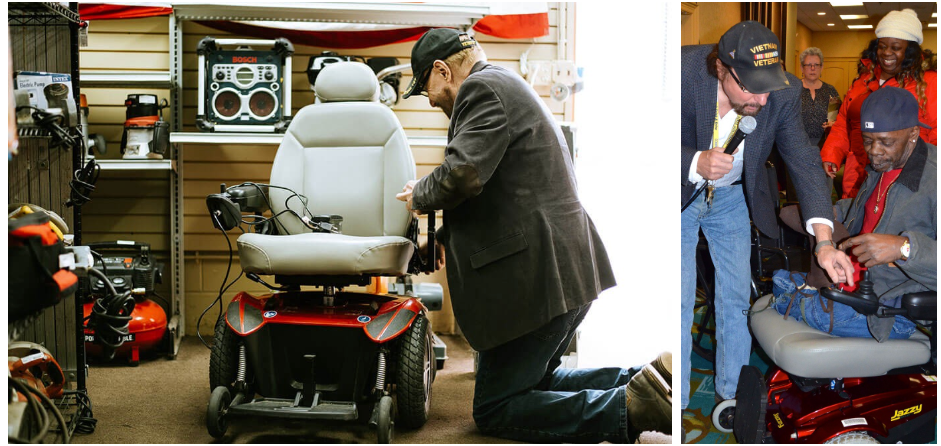
News about the motorized wheelchairs and scooters quickly spread, and soon nursing homes and rehabilitation centers were reaching out to Philip to tell their stories.
But with the growing demand for the chairs came increased costs. Philip was spending money on advertisements and new chair batteries to the tune of $11,000 a year.
To help offset his costs and keep his program running, he launched a GoFundMe and raised over $15,000. Since starting the program in 2009, he has gifted 580 motorized wheelchairs and scooters, completely of charge.
While the process of pairing recipients with their new chairs happens throughout the year, Philip also hosts an annual holiday event to give away 100 wheelchairs and scooters in a single day. He calls the event AZ Pawn Gift of Mobility. With the help of a few dozen volunteers, he gathers the recipients together in Norwich for an emotional day.
“Once we give these chairs to people and see how grateful they are - the tears and the hugging and kissing - I know we’re making a difference,” he says. “These chairs offer a way for people to live an independent life.”
Philip remembers every person he’s helped, from a Holocaust survivor who rarely left home because she was too weak to operate a manual wheelchair, to a WWII veteran whose only trip outside of his apartment in four years was an ambulance ride to the hospital.
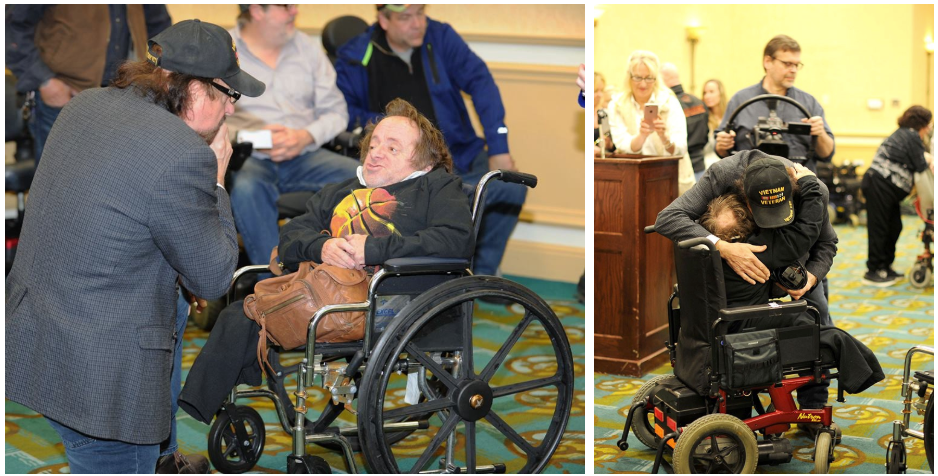
But of all the stories over the years, one in particular is closest to Philip’s heart. A young woman in her early 20’s with a degenerative disease reached out to him for a special wheelchair that could help her navigate rough terrain. The chair was a new model with a big price tag, but Philip was determined to help her.
“I gathered all of the money from my GoFundMe and made some desperate calls to people for additional donations,” says Philip. “I even called the wheelchair company to share her story and explain that the holiday giveaway was in just five days.”
To his surprise, the company generously donated a brand new chair. Philip invited the young woman to his holiday event, falsely promising to make a minor update to her existing chair. Instead, he surprised her with the brand new model before a cheering crowd.
“It was an incredible moment,” he recalls.
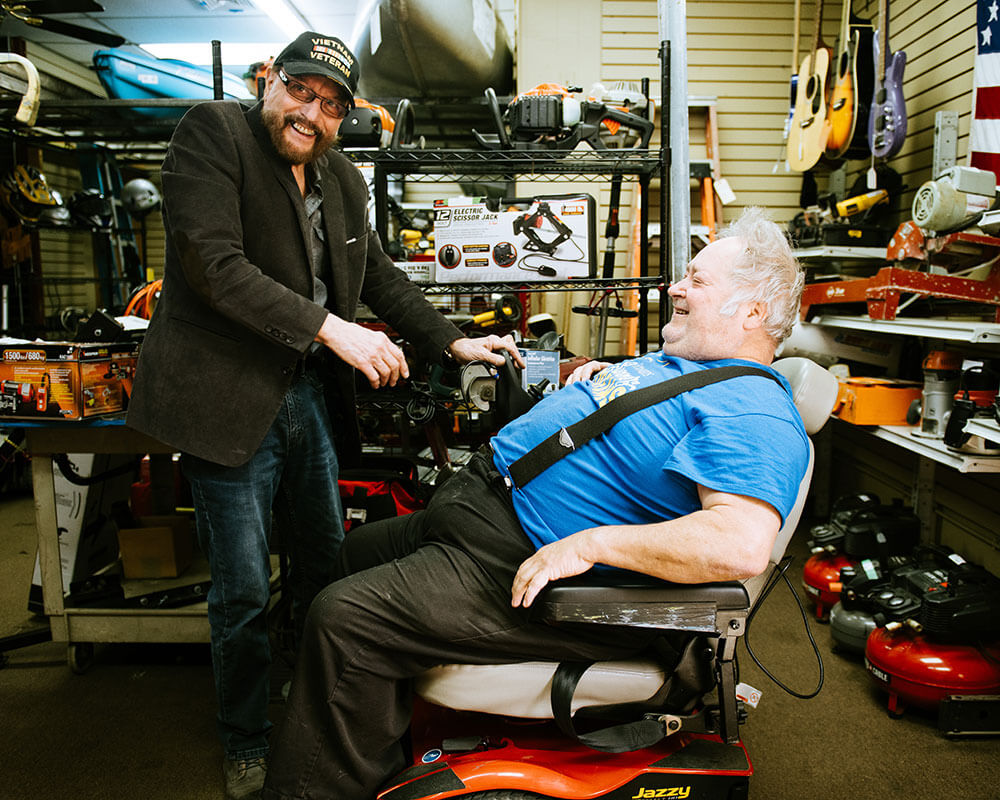
Philip hopes to continue creating memories like these and raising awareness for his program, but says it’s going to take more helping hands.
“I don’t have the means to make this program bigger,” he says. “There are thousands and thousands of people in need - and you can do something about it. For a little effort and just a little money, you can change people’s lives too.”

